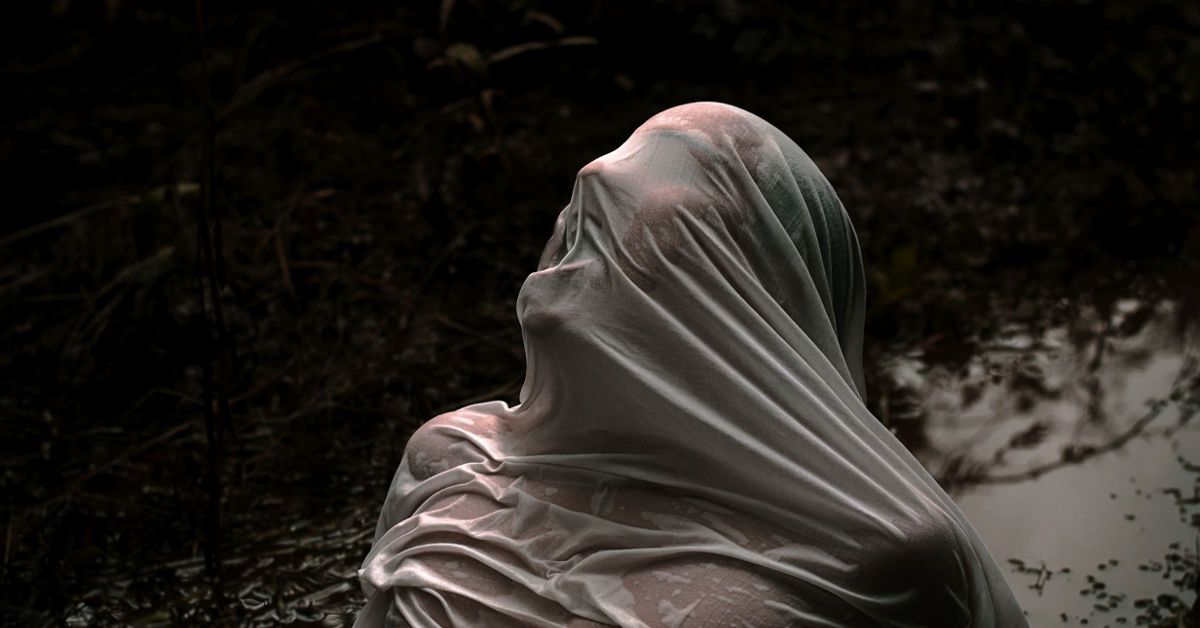Gina’s Tormentor

This post was originally published through Patreon on April 30, 2019
The creature spoke and Gina listened.
She could ignore many things, but not this. Her tormentor was unique, both a part of her and not, and it always knew what to say.
Your life means nothing, her tormentor whispered. Your existence is an accident, your purpose non-existent. Let go, and follow me into the dark.
Every day, her tormentor extended its invitation, and every day, Gina grew one step closer to accepting it.
Gina tossed in her bed, the mattress groaning under her weight, and set the covers aside. She blinked as if lost, then peered up at the clock above her shuttered window.
12:56 p.m.
Is this all your life has become, sleeping through the afternoon and waiting for the sun to set before deciding it’s not worth getting out of bed? Let go, Gina. Let go and be one with me in the dark.
Tears sprang to her eyes, a common occurrence now, and as she lay alone in her dim one-bedroom apartment, her sadness spread, creeping first through her chest, then into her throat, choking her, pulling out of her quaking, trembling body one racking sob after the next.
Life hadn’t always been so dark. Once, she’d been a child. Once, she’d enjoyed the many colors of the world, ignorant of the darkness that dwelled just beyond its borders. Then the storm clouds of adolescence had come rolling in, blotting out the sun, and in the gloom, her tormentor had stirred for the first time: a child of the darkness that would haunt her forever after, cheering for the day that Gina would give up on the light for good.
Gina tried to resist, tried to find a place for herself beyond her tormentor’s corrupting influence. But the creature followed her everywhere she went, sowing seeds of despair and self-loathing until its control over Gina’s mind was absolute.
Now, Gina was on the verge of answering its call, of admitting defeat and allowing it to carry her into the dark. But there was a part of herself that refused to budge, a remnant of the little girl she’d been so long ago.
“No,” Gina heard herself whisper, the first word she remembered uttering in years.
All at once, a change came over her, a crack in those pregnant storm clouds that, for the first time since adolescence, let through a tiny spear of light.
“No,” she said again, and this time her voice was louder, no longer just a whisper but something fiercer. “No, I won’t go with you.”
For a moment the creature said nothing. Gina could feel its shock, its incredulity, and she knew it wouldn’t let her go without a fight.
Come, it said, no longer a question but a command.
It reached into Gina’s heart and plucked the sadness like the strings of an off-tune guitar. Tears poured from Gina’s eyes like rain. But the little girl inside was with her now, and its own influence over her mind was growing, beating back the emotional weeds her tormentor had spent a lifetime nurturing.
“No,” Gina said yet again. “I won’t go with you. Not now, not ever.”
She turned onto her side, forcing muscles atrophied by chronic disuse to move once again, then, at last, pulled herself out of bed.
Her tormentor reeled in protest, but Gina wasn’t going to let it win, not now.
The clouds above her head broke again, letting more light through. Gina continued to cry, but the sound had changed, no longer a reflection of melancholy and despair but of overpowering joy and newfound hope.
You can’t deny me forever, the creature spat.
Gina knew it spoke the truth. She would fight this battle again tomorrow, and the day after, and the day after. Such was her tormentor’s nature. Like cancer, the darkness inside of her would go into remission, then return the moment she believed herself healed.
But the little girl inside would remain with her, ready to remind Gina of who she’d once been and of who she could be once again. Together, they would fight, and one day, if Gina remained strong, she would beat her tormentor for the last time, and in so doing secure for herself eternal freedom.
Enter your email address and click "Submit" to subscribe and receive The Sign.
